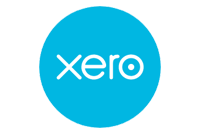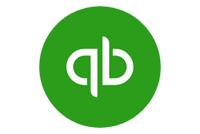The first question that entrepreneurs face when starting a new business is whether they should start as a limited company or sole trader. You will face the same question if you do decide to start up a business. So, let’s have a look at the potential differences, advantages and disadvantages so that you can make an informed decision.
The Differences
Let’s have a look at the dynamics of both business structures separately in order to have a better understanding of how each works.
Sole trader
Being the owner of a small business, most entrepreneurs feel that the business is their own. Which is exactly the case if you register as a sole trader. Registering as a sole trader gives you the legal right over your business. It does not matter if you have employees or not or whether you take all the profit or half of it. If you have registered as a sole business, the absolute control lies in your hands, and nobody can do anything about it other than you. You don’t have to go through the standard payment of corporation tax and then take out your salary. Your salary is the profits you earn, and you are taxed based on the income you generate.
If you view it from a legal point of view, there is no separation between you and your business. You both are one single entity, and as a result, if your business faces any difficulties, all the responsibility lies on you. Nevertheless, setting up a small business as a sole trader is no big deal, and the whole process literally takes a few minutes if you do it online.
Limited company
The dynamics for a limited company are completely different. If you register your business as a limited company, you and the business are separate. The limited company works as an independent entity that now you work under. Even if you are the founder of the limited company, you don’t own it completely. Consequently, what happens is that you don’t take the profits as your salary as in the case of a sole trader. Being a limited company, all the profits belong to the limited company, and you take a salary from the profits. In technical terms, you are an employee of a limited company. So, if you take money from the company in any form, it will either be dividends, loan or salary.
The major benefit of doing so comes from a tax perspective. Since the limited company pays you as its employees and can also make you its shareholder, you become eligible to be paid dividends as well. Being a limited company also has the benefit that for any difficulty or loss, you are not completely responsible, and there is more protection for your assets as compared to be a sole trader. However, there is one major downside, and that is that the whole procedure of registering as a limited company is far more difficult than registering as a sole trader.
Tax bands and rates
The individual recompense has been expanded to £12,500. This is the sum that can be earned before covering any tax paid on income.
For money in 2019/20 over this edge, a sole trader or accomplice in England, Wales or Northern Ireland would be exhausted at the accompanying levels:
- The basic pace of 20% on pay up to £37,500
- The higher pace of 40% on pay somewhere in the range of £37,501 and £150,000
- The additional pace of 45% on pay over £150,000
Scottish citizens are dependent upon the accompanying groups:
- Starter Rate of 19% on salary somewhere in the range of £12,500 and £14,549
- Basic Rate of 20% on salary somewhere in the range of £14,550 and £24,944
- Intermediate Rate of 21% on salary somewhere in the range of £24,945 and £43,430
- Higher Rate of 41% on salary somewhere in the range of £43,431 and £150,000
- Top Rate of 46% on pay above £150,000
These groups and rates just apply to non-reserve funds and non-profit pay. Thusly, on account of the chief investors who are Scottish citizens, their pay would be under the Scottish system, and their profits would be liable to rest-of-UK rates and groups.
- Profits in abundance of the profit recompense of £2,000 are saddled as pursues:
- 7.5% at the Basic Rate up to £37,500
- 32.5% at the Higher Rate somewhere in the range of £37,501 and £150,000*
- 38.1% on pay over £150,000
In case of a limited company, misfortunes must be conveyed forward and set against future benefits or set against the earlier year’s benefits. For sole traders, misfortunes can be set off against other salaries in a similar duty year, conveyed back to earlier years or conveyed forward against future benefits.
Which option is right for you?
Choosing the right option for yourself depends on a number of factors. One of these factors is the plans you have for your business and the stage that you are at. To help you better understand this, let’s go through two examples.
Example 1
Suppose you have just started manufacturing pieces of clothing and other handicraft items. You start selling them on famous online stores, and the response is good, but you are on a small scale, and the turnover is not so high. Moreover, you also have a separate job other than this. In such a case, it is most beneficial to register as a sole trader. You can quickly achieve the status of being a sole trader, and it will be more tax-friendly in this scenario. You always have the option to convert to a limited company once you have settled and made a name. But at such an infant stage, it is best to register as a sole trader.
Example 2
Now let’s have a look at a different scenario. Suppose you have been running your own marketing agency for a good one year now as a sole trader. Your turnover is increasing by the day, and you are looking forward to hiring new staff and expanding the business. The expansion process is making you take loans, and as a result, there is a lot of risks involved. In such a case, it is best to register as a limited company as the benefits outweigh those of being a sole trader in comparison. The risk decreases significantly, as you are not solely responsible for any loss and your assets have better protection. You may also have a reached a point where it is more beneficial to take a salary and pay corporation tax than to take all the profits as salary.
Advantages of going limited

Limited liability
As discussed before, being a limited company means the business is a separate legal entity. As a result, all of your personal assets in your name are protected and any loss incurred is incurred by the company, not you. All of your personal assets won’t be taken to pay any company debts.
Potential for greater profitability
If you are a sole trader, then all of the profits earned are your salary. Consequently, you have to pay income tax on all the profits as well as National Insurance Contributions (NIC) depending upon government thresholds. But if you are a limited company, then you have to pay the corporation tax on all the profits earned. Moreover, you can pay yourself with dividends and salary. As a result, your PAYE will be reduced as well as NIC outgoings. Additionally, there is greater potential for you to claim business expenses working under a limited company. As all the money claimed will be taken away from the company’s profit. Due to this, you won’t have to pay any tax on the expenses claimed.
Borrowing power
Being a limited company, you can come up with your own credit rating. Consequently, you can strongly support your borrowing power. All those who don’t have a high credit rating can make use of this advantage.
Improved reputation/credibility
Having a limited company can improve your reputation and credibility and open gates to new opportunities. Many businesses have a criterion to work with limited companies only, and as a result, when more people approach you for work, your confidence is boosted up.
Advantages of staying sole trader

Less paperwork
It doesn’t matter if you are a sole trader or limited company; in either case, you have to submit a personal self-assessment form to HMRC. However, being a sole trader, you have no other paperwork to do compared to a limited company.
Simpler accounts
Another great benefit of being a sole trader is handling accounts is just simply easy. Lesser, paperwork, the lesser expense to handle and fewer clients. All of this asks for lesser accounts work.
Privacy
Limited companies have to be transparent, but the same is not the case for sole traders. You don’t have to share the details of the business with the public being a sole trader.
In Conclusion
Deciding which business structure to go for when starting a business is no easy task even if you have all the information on hand. Sometimes assessing the information requires a professional mind in the field. Majestic accountants have a versatile service for all those planning on starting up. From creating a business plan to selecting the appropriate business, structure, to diverse finance options to HMRC registration, everything is covered by the professional waiting to work with you at Majestic.
Our Offices
Hounslow Office
Profile West
Suite 2
Floor 1
950 Great West Road
Brentford
TW8 9ES
Ealing Office
The Saunders House
52-53 The Mall
Ealing
W5 3TA
Telephone: +44 (0) 208 577 0204
E-mail: staff@majesticaccountants.com












